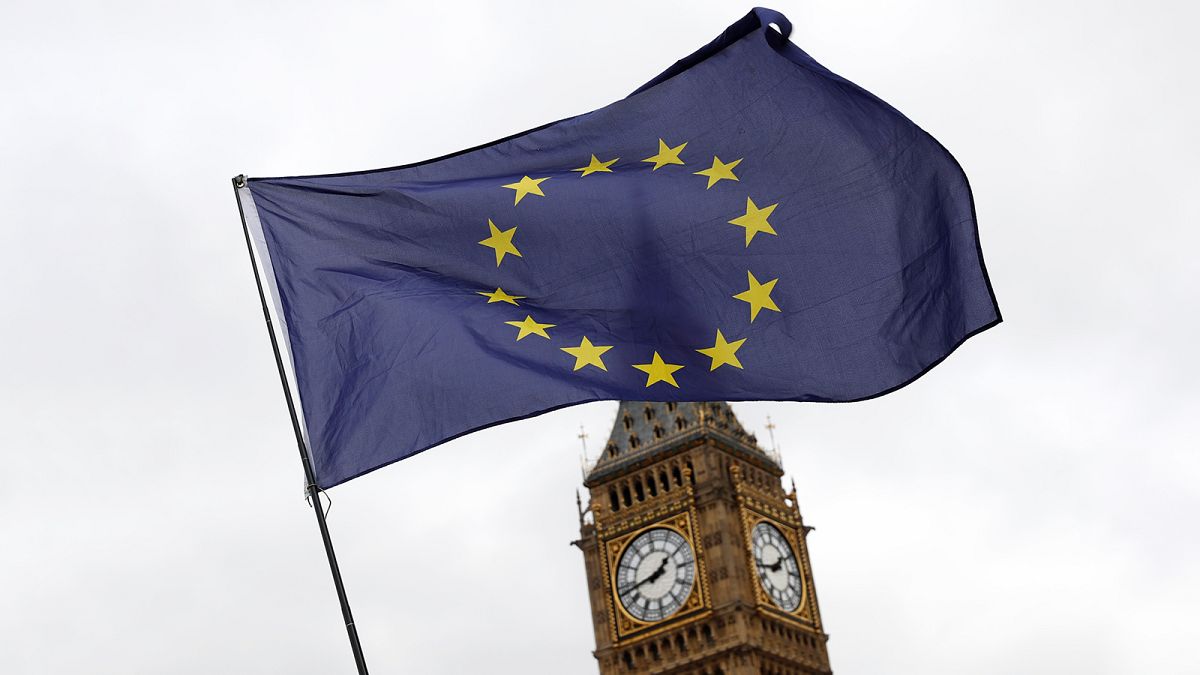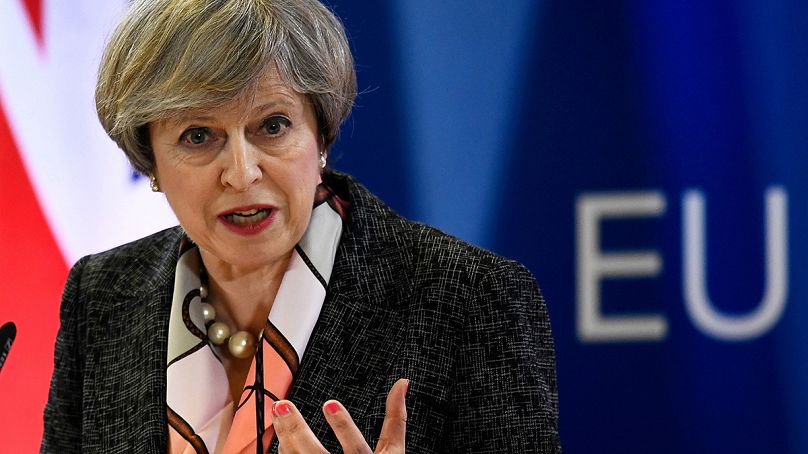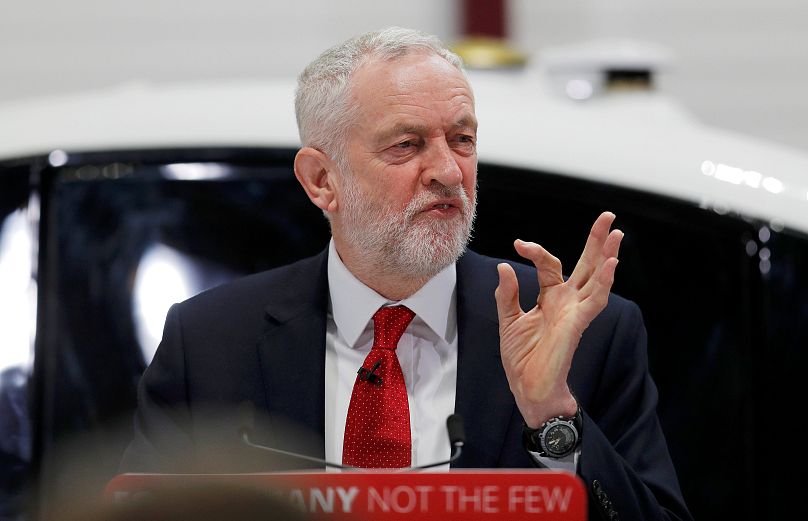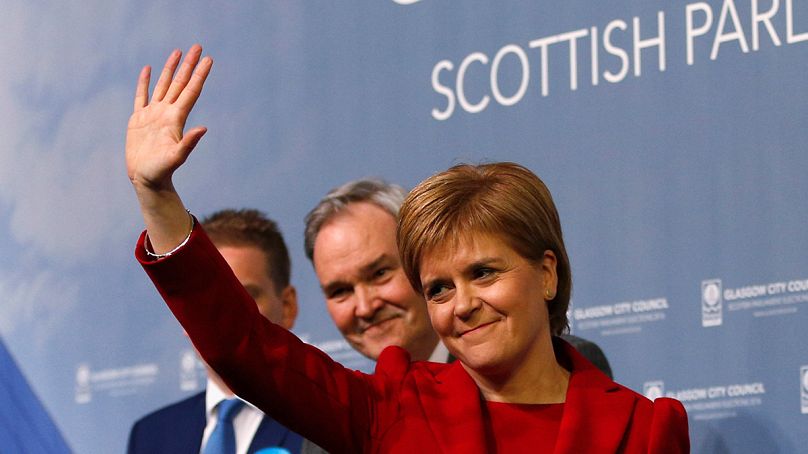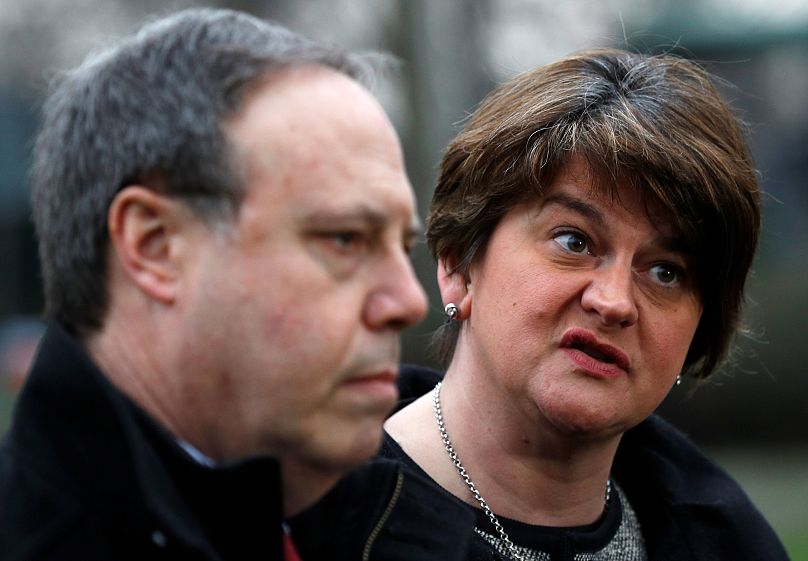As Labour shifts its stance on a customs union, Euronews looks at what other parties in the UK parliament think about trading with the EU post-Brexit.
Conservative Party (318 seats out of 650 in UK parliament)
Britain’s ruling party — in power thanks to support from the little-known Democratic Unionist Party (DUP) from Northern Ireland — is divided on Brexit.
The executive alone includes prime minister Theresa May, who campaigned to remain in the EU, and arch-Brexiters like Boris Johnson and Liam Fox.
The latter want an independent Britain to be able to strike trade deals with other countries around the world, while pro-Remain voices like Chancellor Philip Hammond want to remain more closely aligned with the EU.
EU chiefs and Conservative MPs have urged May to clarify the party’s position on what it wants from Brexit.
So what would the government like?
Firstly we know from May’s often-repeated “Brexit means Brexit” mantra that it does not want to turn back the clock.
It’s also clear that it wants to leave the single market and the customs union, so it can control immigration from the EU and strike trade deals with other countries.
A customs union is an arrangement that sees the elimination of tariffs and export taxes on goods at the border between countries, whereas a single market is a deeper relationship where goods, services, money and people are traded freely as if all was within the borders of one country.
There is also Tory acceptance there should be a post-Brexit transition period, for just under two years, during which the UK stays in the single market and customs union, to allow businesses to adjust.
What is less clear is how leaving the single market and customs union tallies with the UK’s stated aim of having “frictionless trade” with the EU post-Brexit and not threatening the peace deal in Northern Ireland.
A meeting of the government's inner cabinet at the prime minister's Chequers residence concluded with a compromise agreement to seek "managed divergence" from EU rules and regulations.
Labour Party (262 seats)
The UK’s main opposition, also split over Brexit, signalled a major change in its policy on quitting the EU on Monday (February 26).
In a switch from its stance during the elections last year, Labour is now backing staying in a customs union, post-Brexit.
Doing so would prevent the UK from striking out alone and forging trade deals with other world powers.
Jeremy Corbyn, the party’s leader, also indicated he still favoured the UK quitting the EU’s single market.
He said on Monday: “Labour would seek a final deal that gives full access to European markets and maintains the benefits of the single market and the customs union as the Brexit Secretary, David Davis promised in the House of Commons, with no new impediments to trade and no reduction in rights, standards and protections.
“We have long argued that a customs union is a viable option for the final deal. So Labour would seek to negotiate a new comprehensive UK-EU customs union to ensure that there are no tariffs with Europe and to help avoid any need for a hard border in Northern Ireland.
“But we are also clear that the option of a new UK customs union with the EU would need to ensure the UK has a say in future trade deals.
“A new customs arrangement would depend on Britain being able to negotiate agreement of new trade deals in our national interest.
“Labour would not countenance a deal that left Britain as a passive recipient of rules decided elsewhere by others. That would mean ending up as mere rule takers.”
Scottish Nationalist Party (35 seats)
The SNP, which governs in Scotland’s regional assembly, wants to stay in the European Union and has been one of the government’s fiercest critics on Brexit.
It says: “The SNP believe that EU membership delivers many social, economic and cultural benefits for individuals, business and communities across Scotland. We believe that the best way to build a more prosperous and equal Scotland is to be a full independent member of the EU.
“A Tory hard Brexit, outside the single market, threatens to cost Scotland 80,000 jobs over a decade and cost people an average of £2,000 (€2,268) in wages. Retaining our place in the Single Market would avoid that.
“The SNP doesn’t believe the EU is perfect and agree that it needs reform, however we want Scotland to have a louder voice in Europe, an increased contribution to EU policy making and an opportunity to be part of discussions about reform, rather than becoming even more distant by removing ourselves altogether.”
Liberal Democrats (12 seats)
The pro-European Liberal Democrats want to stay in the Brussels club, despite acknowledging its imperfections.
It argues that Britain only voted to leave the EU - not how it would quit.
“The decision Britain took, though, was simply whether to remain in or to leave the European Union,” the party said in a policy statement. “There was no option on the ballot paper to choose the shape of our future relationship with the EU on vital issues including trade, travel or security.”
It says after the government has negotiated a Brexit deal with the EU, it should go to the British people for approval in another referendum.
Democratic Unionist Party (10 seats)
Northern Ireland’s DUP, who’s small band of MPs keep Prime Minister Theresa May in power, does not have a stated Brexit policy on its website.
However it campaigned to leave the EU during the referendum in 2016.
Its main concern appears to centre on its future ties with the UK and the Republic of Ireland post-Brexit.
The DUP wants to avoid having customs checks at the border with its southern neighbour, so as not to impede trade.
It is also keen to avoid an arrangement whereby mainland UK has a different relationship with the EU than Northern Ireland.
Sinn Fein (7 seats)
Sinn Fein also wants to avoid a land border between Northern Ireland and the Republic of Ireland.
It argues “the only credible approach is for the north to be designated special status within the EU and for the whole island of Ireland to remain within the EU together”.
Plaid Cymru (4 seats)
Welsh party Plaid Cymru says it accepts the vote to leave the European Union buy says the best solution is to remain in the single market.
Green Party (1 seat)
The Green Party’s policy on Brexit is along the same lines as the Liberal Democrats: it wants a “ratification referendum” on the final deal negotiated with Brussels.
